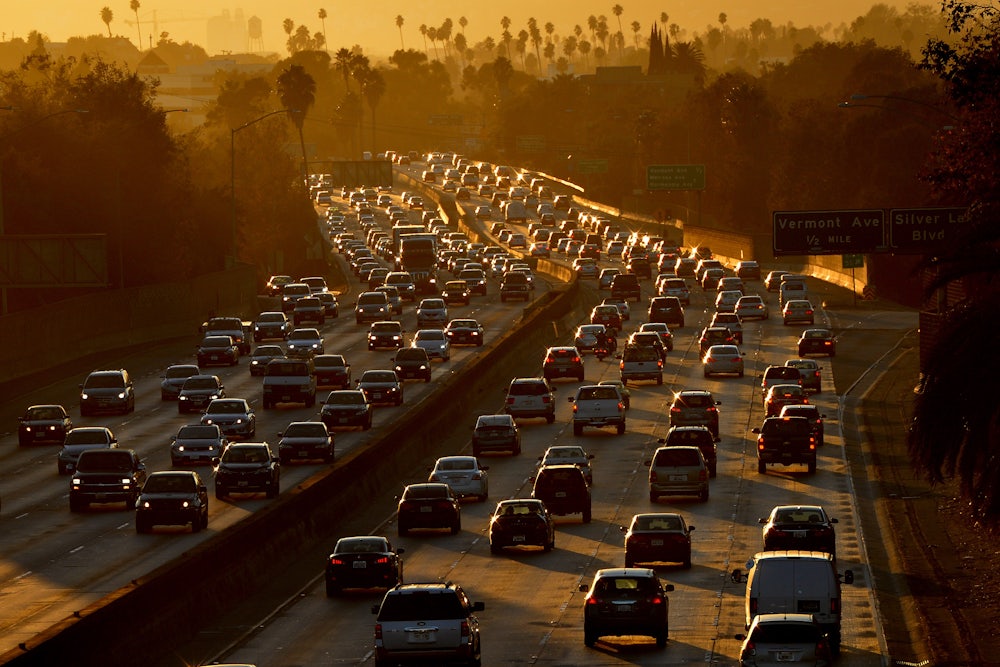A bill introduced Wednesday in the California State Assembly would require all new vehicles sold in 2040 to be zero emissions (with the exception of commercial trucks over 10,001 pounds). “More cars are sold each year in California than in any other state—and more than in some countries,” Bloomberg reports. “If adopted, the measure would eliminate a huge chunk of carbon emissions as part of the state’s quest to slash greenhouse gas emissions by 80 percent from 1990 levels by 2050.”
As of 2015, the transportation sector was responsible for 39 percent of California’s greenhouse gas emissions. And last month, for the first time in 40 years, transportation surpassed power plants as the top greenhouse gas emitter in the United States. That’s mainly because the electricity sector has increasingly turned away from coal in favor of natural gas; transportation emissions have been relatively flat since 2000. “Cars are becoming more efficient under aggressive pollution rules passed under President Barack Obama,” Bloomberg reported, “but that’s so far been offset by an ever-rising American appetite for SUVs, crossovers and pickup trucks.”
A countrywide ban on gas vehicles, then, would drastically reduce America’s greenhouse gas emissions. It’s not a far-fetched idea. Norway, the Netherlands, France, the United Kingdom, India, and China all plan to phase out vehicles fully powered by fossil fuels. But the Trump administration is tacking in the other direction. In August, the Environmental Protection Agency and the Transportation Department began the process of rolling back fuel-efficiency standards that were approved under President Barack Obama and set to take effect in 2022. “Many analysts believe that rolling back fuel standards could jeopardize the near term future for electric vehicles,” NPR reported. The silver lining here: In passing their tax-cut bill, Republicans decided not to kill the electric vehicle tax credit after all.
